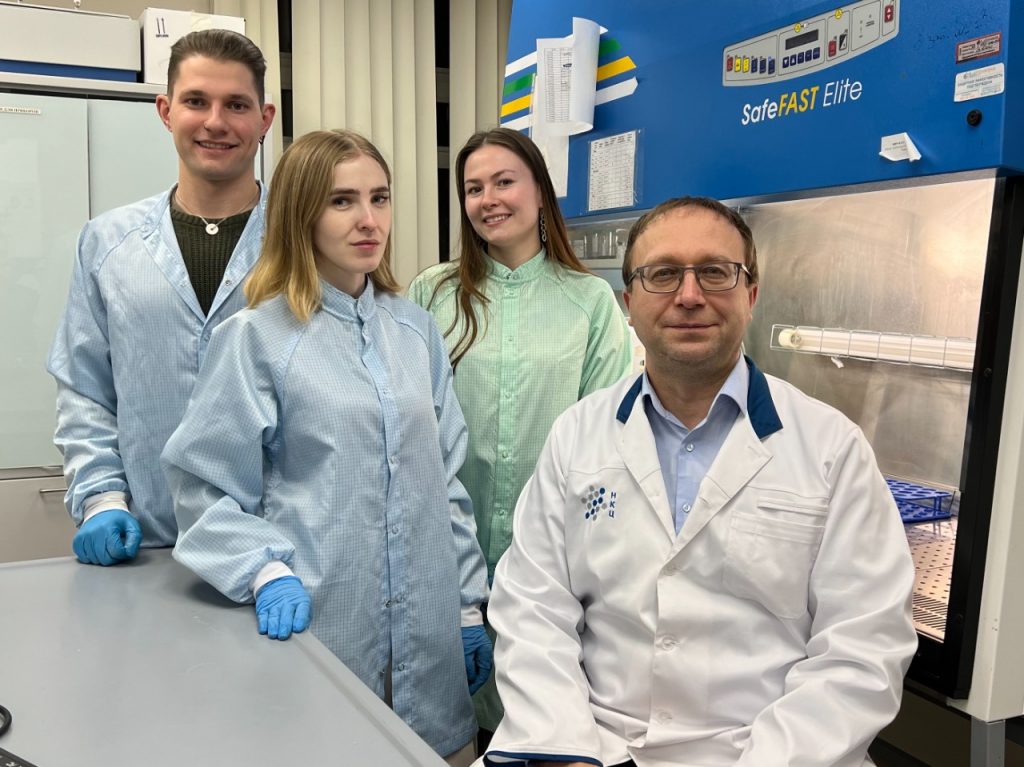Gene and Cell Technologies Lab offers way to test antitumor medications

A paper appeared in Bioengineering.
Head of the Laboratory, Professor Albert Rizvanov notes, “Neuroblastoma is one of the most prevalent solid tumors in infants. In case of negative development of the disease, multiple metastases can form in the spinal cord and the lymphatic nodes. Such a tumor is also often resistant to chemotherapy. Research shows that healthy cells around the tumor boost its survivability and give it time to develop drug resistance.”
The KFU team studied interactions of neuroblastoma cells and created a relevant model in vitro.
“Existing systems for pre-clinical screening of antitumor medications in vitro are mostly single cell 2D models without its micro-environment and the general architecture of natural tumor. This can lead to unreliable results, financial loss, and time loss. As a new approach to modeling, we offer simultaneous cultivations of several populations of cells comprising the tumor tissue with the help of extracellular matrix,” explains the Professor.
The cell populations in question are stem cells of the spinal cord, blood immunity cells, and neuroblastoma cells. They were cultivated together.
The interviewee continues, “The research showed that cells in the co-culture exchanged membrane components and signal molecules. Stem cells and immune cells contributed to the growth of inflammation characteristic for a tumor. It resembles a long-running non-healing wound. The team proved that co-cultures are resistant to antitumor therapy. Inter-cellular cooperation cause changes in gene expression of genes partaking in cell death and tumor growth in tumor, stem and immune cells.”
As a result, a relatively simple test system was created which is suitable for use in university-level molecular laboratories.
“Standard test techniques on typical tumor cells are not always precise because an intra-organism tumor composition is much more complex, and healthy and cancerous cells work in tandem; and the real-life 3D structure of the tumor influences drug receptiveness,” mentions Junior Research Associate Kristina Kitaeva.
Notably, the new test system is based on a previous patented development by KFU, a co-cultivation system for cell testing, commended as one of the 100 best inventions in Russia in 2020 by the Federal Service for Intellectual Property.

